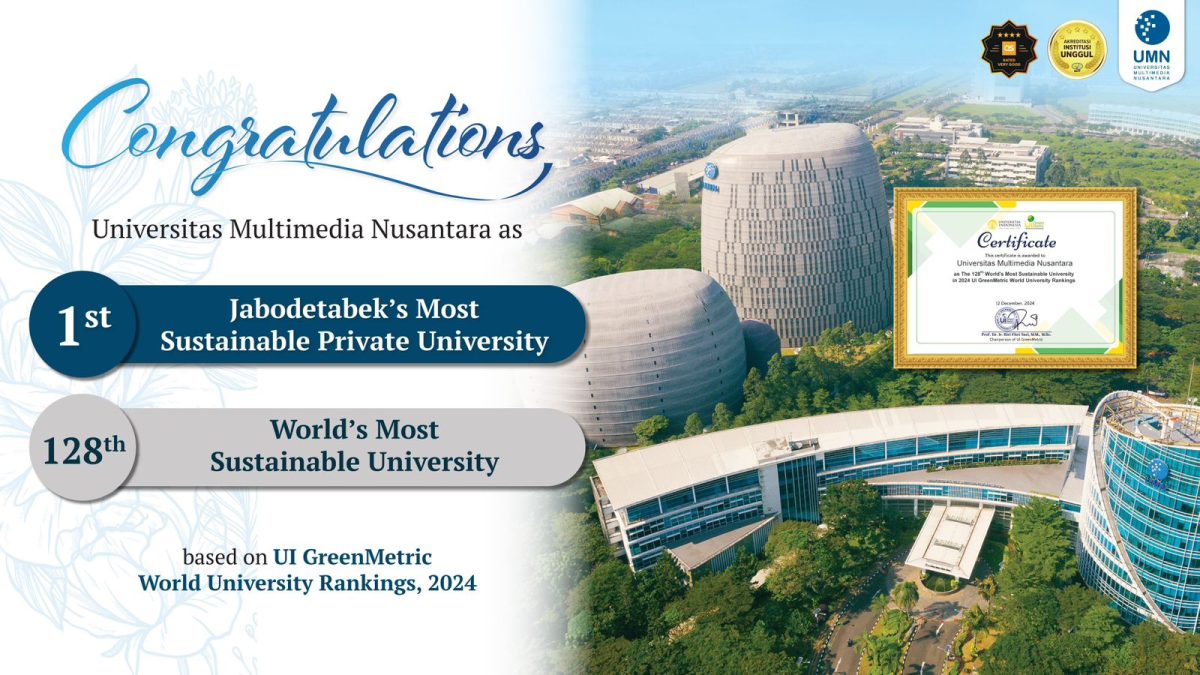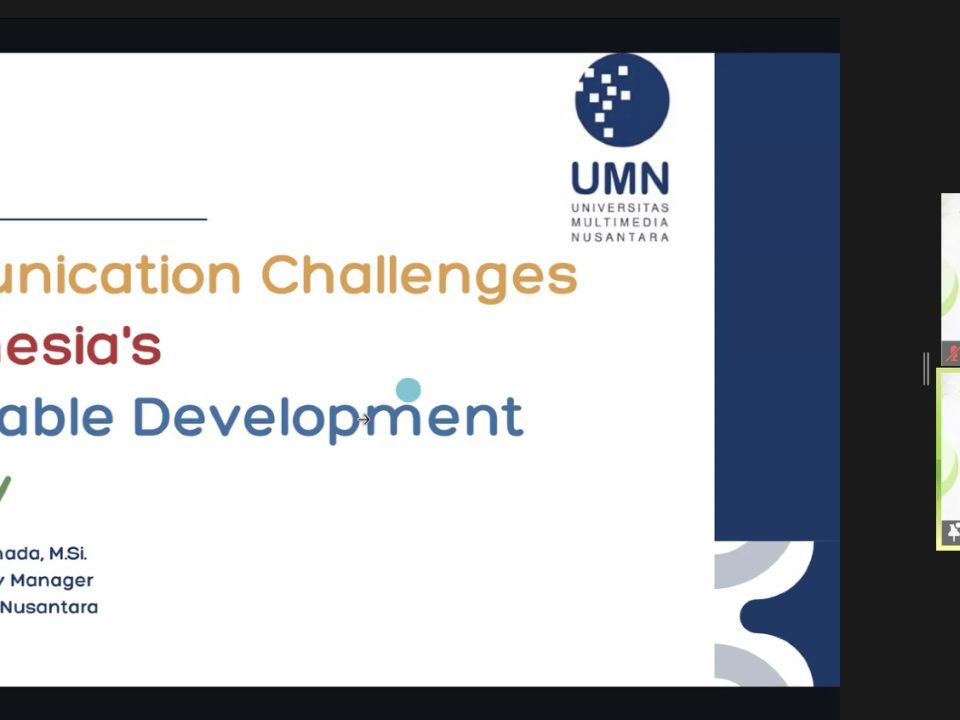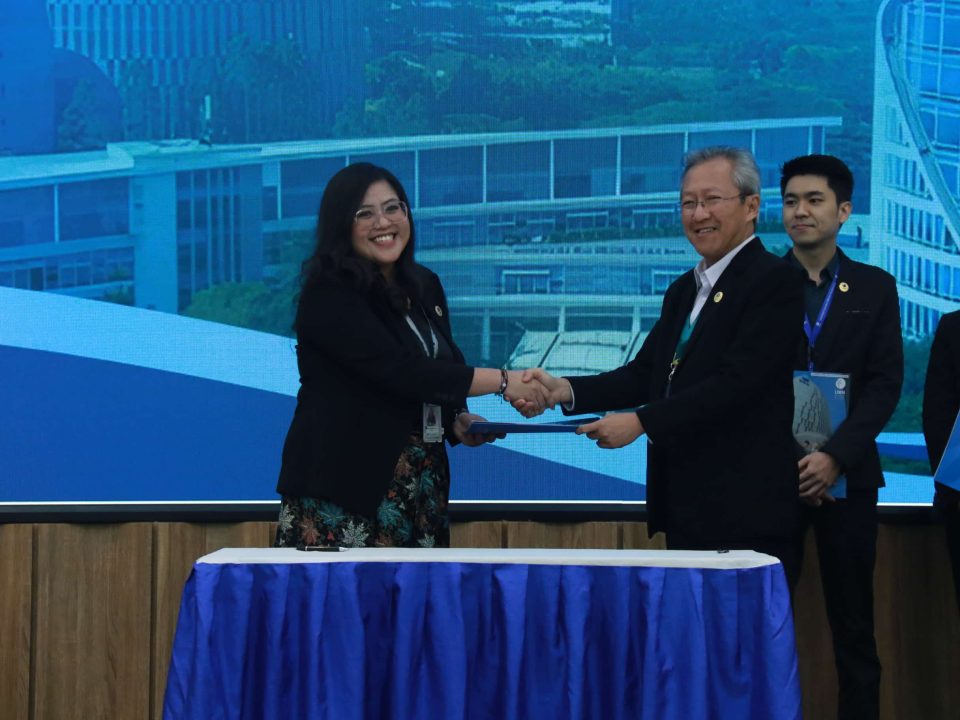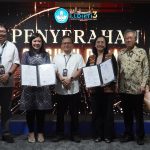
Two New UMN Professors, Ready to Advance UMN’s Education
January 8, 2025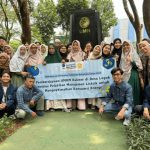
UMN Provides Electrical Management Training for Culinary MSMEs in Legok Village
January 17, 2025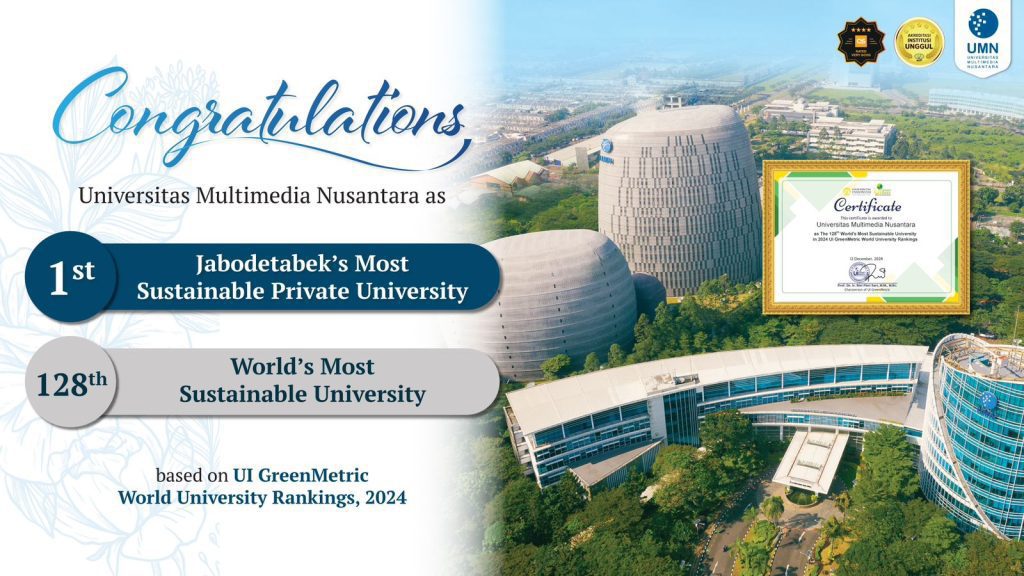
UMN’s ranking in The 2024 UI Green Metric. (Doc. UMN)
Tangerang—Universitas Multimedia Nusantara has once again achieved a ranking in the UI GreenMetric. In 2024, UMN was ranked 128th in the nomination of the most sustainable university in the world and 1st in the most sustainable private campus in the Greater Jakarta Area. This achievement is outstanding for UMN, which continues to be committed to sustainability.
UI GreenMetric is an International World Ranking University program that has been operating since 2009. The program aims to continue encouraging sustainability in higher education. UI GreenMetric held another awarding ceremony in Sao Paulo, Brazil this year. 1,477 universities from all over the world, including UMN, attended.
“The increasing ranking of UI GreenMetric proves that UMN is a campus committed to sustainability. This year, we aim to improve the indicators with low scores. UMN’s indicators are mostly waste management and education and research,” Dr. Andrey Andoko, UMN Rector, said.
Dr. Andrey also explained the various things that UMN has implemented to improve the UI GreenMetric ranking this year, such as implementing policies for all academic, student, research, and community service activities that must support themes in accordance with the SDGs. UMN also focuses on waste management and handling organic, non-organic, and hazardous waste for recycling.
“I hope that UMN can reach the world ranking target and achieve the number one ranking amongst Indonesian private universities. With this ranking, it will be a strong capital for UMN to establish cooperation with foreign universities that also care about sustainability. In addition, this achievement is part of UMN’s Internationalization program,” Andrey continued.
Like in previous years, UI GreenMetric has six assessment criteria: infrastructure, energy and climate change, waste, water, transportation, and education and research. UMN itself improves these six criteria in various new ways.
“We have worked on many things to improve this year’s UI GreenMetric ranking, such as composter and eco-enzyme processes and facilities for organic waste management, academic and non-academic information systems to reduce the use of paper, videotrons, and electronic bulletin boards to reduce the use of banners, posters, and flyers that can produce waste, canteen systems without plastic straws and styrofoam, international collaboration programs, and many more,” said Dr. Eng. Niki Prastomo, S.T., M.Sc., Dean of the Faculty of Engineering and Informatics and also part of the UMN team for UI Greenmetric.
For Niki, UI GreenMetric is a good program that encourages universities around the world to improve their sustainability efforts and contribute to environmental preservation. UI GreenMetric continues to encourage universities in Indonesia and around the world to apply sustainability principles and contribute to global environmental issues.
“The difference between this year and last year may be that indicators that do not have assessment weight are added this year, namely related to the utilization of information and communication technology and the existence of work units at the university level that coordinate activities related to sustainability principles. But for the future, we will continue to improve new things such as renewable energy, develop information systems for monitoring the use of electrical energy, and many more,” Niki said.
Niki hopes that education, regulation, and enforcement will play a key role in creating a solid sustainability ecosystem in the future. Niki also hopes that UMN can continue to take part in this synergy to encourage innovation, increase global reputation, and make a real impact on the environment because, for Niki, UMN can be an inspiring place for students and communities to learn, innovate, and develop solutions to the world’s sustainability challenges.
“Hopefully, the small steps taken at UMN can have a big impact on the environment and society so that awareness and involvement of many parties in sustainability principles can continue to grow,” Niki concluded.
By Rachel Tiffany Tanukusuma | UMN News Service
English translation by Levina Chrestella Theodora
Kuliah di Jakarta untuk jurusan program studi Informatika| Sistem Informasi | Teknik Komputer | Teknik Elektro | Teknik Fisika | Akuntansi | Manajemen| Komunikasi Strategis | Jurnalistik | Desain Komunikasi Visual | Film dan Animasi | Arsitektur | D3 Perhotelan , di Universitas Multimedia Nusantara. www.umn.ac.id

